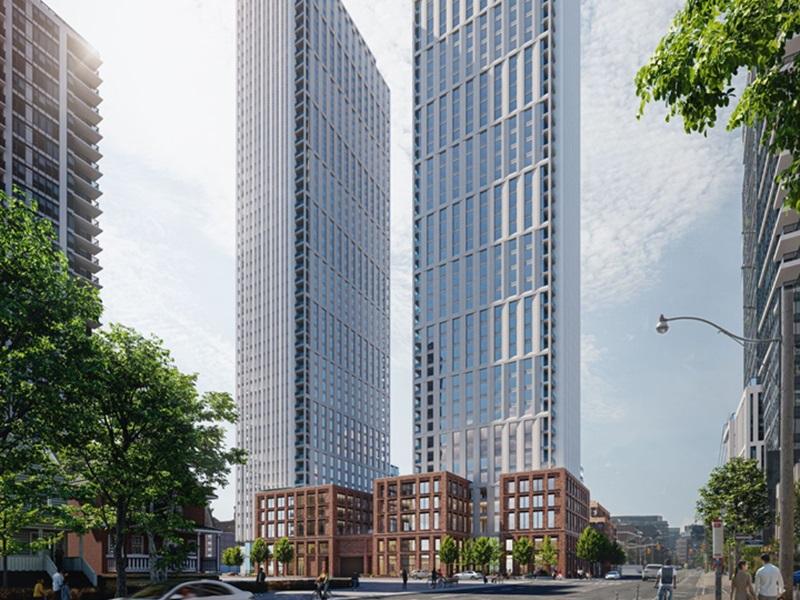
Derek Lobo, the founder and CEO of SVN Rock Advisors Inc. who has spent more than three decades in the apartment industry, has founded the National Apartment Council to provide a united voice for Canada’s private apartment developers.
“Ninety per cent of all of Canada's apartments are built by private people and private developers, and there's no association in Canada to represent the private developer,” Lobo told RENX. “We've over-legislated our business and now we find ourselves with a severe rental housing shortage with rental starts and housing starts dropping when they need to be doubling or quadrupling.”
Lobo decided to model the organization on the United States’ National Multifamily Housing Council (NMHC), of which he’s a member. He received advice from the NMHC about its early days and used it as a road map before launching the Canadian equivalent in the spring.
In addition to advocating on behalf of private apartment developers to the government, the association also seeks to educate the public on good rental housing policy, according to Lobo.
Lobbying for the return of the MURB provision
Prime Minister Mark Carney made the provision of rental housing a major part of his agenda after being elected earlier this year, including possibly resurrecting the Multiple Unit Residential Building (MURB) program.
“At a time when the condo market is shrinking and people are losing jobs, we’re saying that this legislation is going to create jobs,” Lobo said. “It's not just about developers and renters, it’s about the overall economy and keeping the economy going.”
MURB was a federal tax provision introduced in 1974 that allowed individuals and corporations not in the real estate business to deduct losses created by capital cost allowances on rental property from non-rental income. This enabled an owner (in whole or in part) of a MURB provision-eligible apartment building to deduct some of the expenses associated with that building against their personal or corporate income.
This contributed to significant investment in new apartment construction and almost 200,000 units of rental housing being built before the MURB provision was scrapped by a new federal government in 1981.
“What we want to do is bring it back in ways that are going to work,” Lobo said. “You can take legislation and put so many rules and regulations behind it that it will collapse from its own weight.
“So we're saying bring back the program that we know works, and bring it back in the same format, because we've got a formula.”
Fundraising and attracting members
National Apartment Council founding members must be invited and are required to pay a $50,000 annual fee. Affiliate members have a $25,000 annual fee and advisory members have a $12,000 annual fee.
Lobo would eventually like to get up to 200 members, and noted many of the earliest members have come in at the highest level.
Lobo told RENX the council has received $600,000 so far after two Zoom calls with potential members. The money will pay for staffing, research and lobbying efforts.
“Developers were saying ‘It's about time, it’s a good initiative, and thank you for doing it,’” Lobo said.
As much as possible will be done virtually without a need for in-person meetings and physical office space.
“We’re also looking to build alliances with other industry associations, like the home builders’ associations, the various landlord and property management associations and REALPAC (Real Property Association of Canada),” he explained.
Lobo is president and chair of the National Apartment Council. George Glover, who founded GM&F Partners in 2012 to provide sustainability solutions for the non-profit sector in both the United States and Canada, is executive director. Ali Shahsamand — a public affairs, policy and stakeholder relations professional — is associate director.
SVN Rock Advisors senior advisor Darryl McCullough is also the council’s senior advisor, while Drewlo Holdings president Allan Drewlo and Patry Group president Jay Patry are advisors.
Membership benefits
“It’s in the interest of every apartment developer to build more apartments,” Lobo said. “Members are going to get briefings, they’re going to get an understanding of what's coming, they're going to get education and they're going to get advocacy for the greater good of their entire industry.”
Lobo pointed out that during the COVID-19 pandemic the hotel industry got 75 per cent of its wages paid, municipal tax reductions and mortgage deferrals. Meanwhile, the apartment industry got nationwide rent controls and eviction and rent freezes.
“The difference is that the hotel industry had someone advocating and the apartment industry didn’t."








